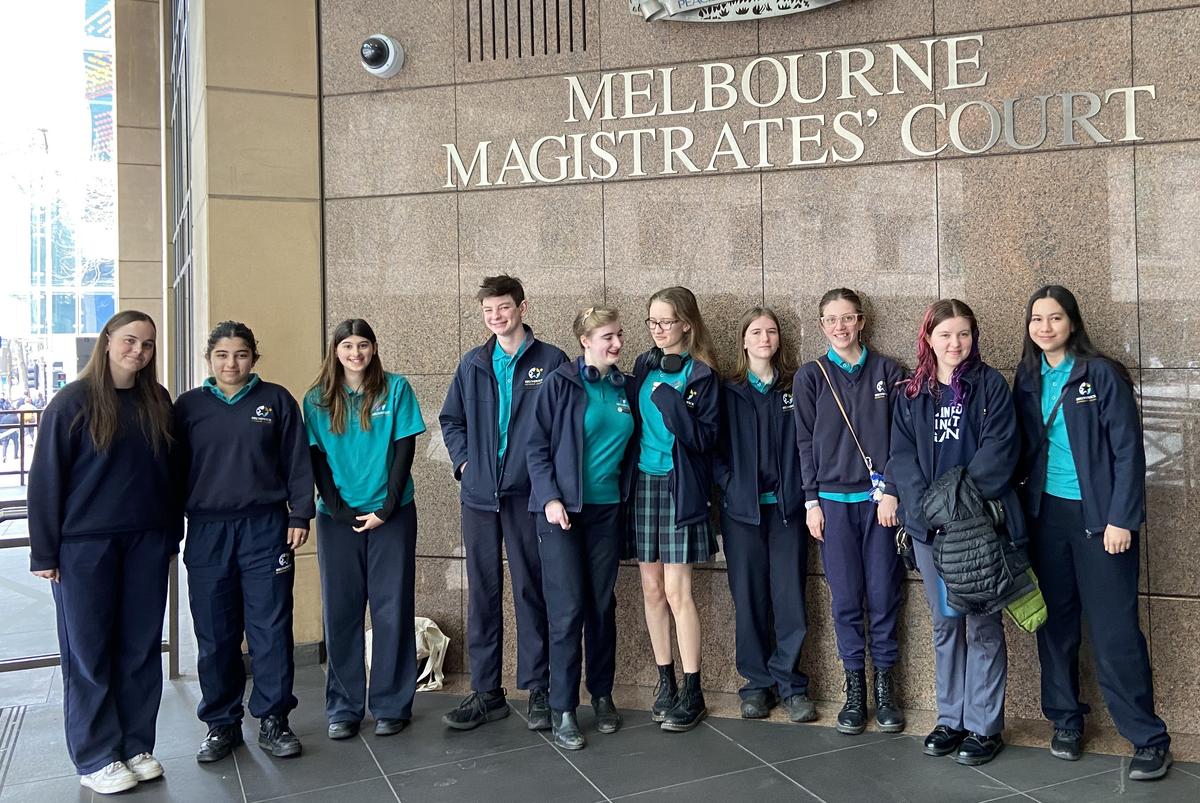It's only fair, Your Honour!

Rosalie Fourniotis
Teacher - Legal Studies
Earlier in September, each of the two Year 11 Legal Studies classes had excursions to attend the Melbourne Magistrates’ Court to observe first hand the court system in action.
This experience highlighted their classroom learning about the difficulties individuals face in the criminal and civil justice systems.
Back in the classroom, students were asked to reflect on the extent to which the principles of justice – access, equality and fairness, are upheld in the courts. Some of these reflections are shared below.
Sarah Assaad
Year 11
The principles of justice were mostly upheld according to my observations of the Magistrates’ Court. The accused and other people involved in cases were able to participate in court proceedings through online video meetings/calls. This means that, regardless of physical distance, the accused and witnesses can still be present at court proceedings.
However, a consideration is that their ability to participate may be limited if they do not have the technological means (a device suitable to enter the online meeting with as well as a stable internet connection). This could also relate to socioeconomic factors, given the relevance of financial position.
Adriana Athanasiadis
Year 11
In the Magistrates’ Court equality was upheld during a court hearing. Substantive equality was achieved through the offender having an interpreter present in court with him. The offender committed a driving offence, he was driving without a licence. The offender couldn’t speak or understand English, so the interpreter assisted him. This upholds equality because the offender isn’t at a disadvantage and can contribute to the discussion and answer any question the magistrate has.
Hayden Murphy
Year 11
One of the principles of justice we saw being upheld was fairness. This was evident as all of the hearings we saw seemed to be run fairly with an impartial Magistrate and an open process, as members of the public, such as ourselves, were able to walk in to watch the cases without question. On the other hand, the principle of access was somewhat not upheld as many accused people did not have legal representation or did not understand the legal processes. This can impact the achievement of justice.
Zoe Kyriopoulos
Year 11
The principal of equality was upheld in the Magistrates court through the use of an interpreter. An accused person wasn’t able to understand English which is what the Magistrate was speaking, so he was able to have an interpreter to translate everything that was being said into his preferred language. This is an example of substantive equality as the accused was at a disadvantage compared to everyone else, which was fixed by bringing in an interpreter to ensure that the accused was at an equal level with everyone else.
Maisie Maguire
Year 11
When visiting the Magistrates court, I was able to witness how the principles of justice were upheld when seeing cases. One of the principles of justice, access, was met in many courts through allowing accused people, witnesses, or any other people involved in the case to appear online. For example, a person who was on remand was able to appear over zoom, allowing him to be involved in his hearing without having to leave the remand centre. As well as this, a witness was allowed to speak about their experience witnessing a crime over zoom, allowing them to feel more comfortable in their own home. By allowing people involved in the court process to appear online, the courts allow people who would not physically be able to access the courts, as well as people who would be uncomfortable or far away from courts the ability to have a fair and accessible process in the courtroom without having to travel unnecessarily or put themselves at risk.







